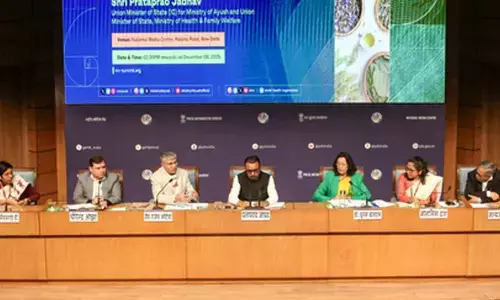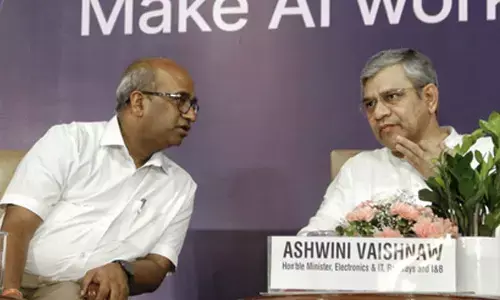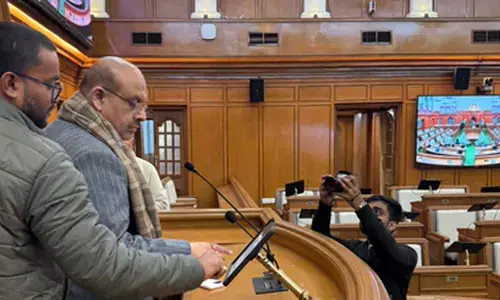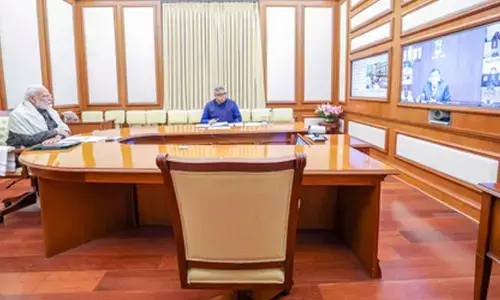Thus begins our season of despair
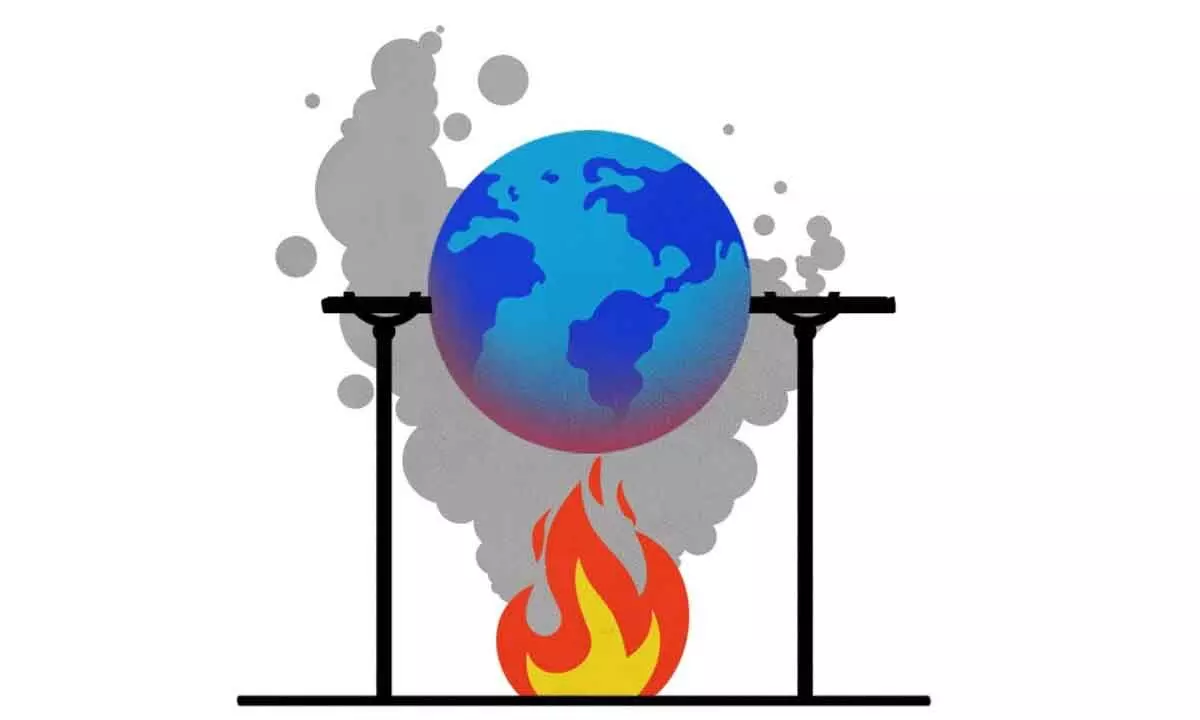
There is now no weather pattern for scientists to follow, and we are exposed to nature’s dictates like never before
Many parts of the world, which are heating up, will need to find solutions for thermal comfort—including installing air conditioners. What this will mean for our warming world will depend on what these countries do to reduce the emission intensity of their energy grid. It will also depend on their ability to do what has been discussed for long; retrofit their buildings for better insulation and for ventilation. The fast-warming world will require inventive solutions so that we do not end up blowing up even more of the non-existent carbon budget
Climate records have tumbled like never before in the past two months. First, the planet observed its hottest June on record. Then came July, which recorded the hottest two weeks ever.
In June, the surface temperature of the world’s oceans was the highest ever; Antarctica’s ice was the thinnest ever. The heat has gone off the charts in many parts of the world, and never before have there been extreme rainfall events that have resulted in such large-scale loss of property and lives. Scientists warn that this is only the beginning of our season of despair as much is changing in the natural world around us.
The unprecedented intense heatwaves in the oceans, including in the Bay of Bengal, is changing the way the monsoon winds blow over the Indian subcontinent’s landmass.
Then the western disturbances, which emanate from the Mediterranean region and bring snow and rainfall to the subcontinent in the winter season, are becoming more variable. This, scientists believe, is linked to temperature changes in the Arctic.
In 2023, the western disturbances that came as late as in June collided with the monsoons and resulted in extreme rainfall, floods and devastation. This is now going to be combined with the much-warmer-than-anticipated North Atlantic Ocean temperatures, which drives extreme weather disturbances like cyclones, and the onset of El Nino in the Pacific, which is a precursor of extreme heat and drought.
The bottom line is that there is no weather pattern for scientists to follow. We are out of our comfort zone and will be exposed to nature’s dictates like never before.
Yet, our response to the catastrophic events has been grossly inadequate in terms of action to combat climate change. Let’s be very clear about this—greenhouse gas emissions are not decreasing anywhere close to the scale or at the pace they need to.
This is a fact and needs to be repeated so that we are not under the optical illusion that the already rich and industrial world is moving out of fossil fuels into clean energy and battery-driven vehicles or, even better, buses.
The only big development that has brought down emissions in the rich world has been its shift away from coal for energy supply—mostly to use natural gas. But natural gas is a fossil fuel; it still pollutes and keeps the world in the unsafe zone.
Furthermore, the world that is today ravaged by the impacts of climate change is not getting the investment it needs to move even incrementally towards a cleaner tomorrow. We need to address this and now. Let’s stop beating around the bush on this issue, and understand that when we say we are in this together, we really are.
Many parts of the world, which are heating up, will need to find solutions for thermal comfort—including installing air conditioners. What this will mean for our warming world will depend on what these countries do to reduce the emission intensity of their energy grid.
It will also depend on their ability to do what has been discussed for long; retrofit their buildings for better insulation and for ventilation. The fast-warming world will require inventive solutions so that we do not end up blowing up even more of the non-existent carbon budget.
In our world, we have millions of farmers, who are the worst impacted by extreme and variable weather. The situation is so bad that they have no idea when to plant their next crop—the planting season, which starts with the advent of the monsoon, has come and gone.
What they plant is devastated by flood or by lack of rain. There is no crop calendar that they can work with now; and their risks are compounded many times. This is the tragic human face of extreme weather that we are seeing over and over again. Let’s not lose sight of this.
Then, we are oblivious of the need for climate-resilient development. In fact, we are doing the reverse. We are building on the floodplains, choking drainage and filling up waterbodies. We are mindless about the fact that the Himalayas are the world’s youngest mountain range and so, development of everything from buildings to roads and other infrastructure must be based on this vulnerability.
The devastation in our world is not only because of climate change—as our politicians would like us to believe. Climate change is exacerbating, making worse our human-made mess. I say this because we must not slip into believing that fixing this mess is beyond our control. Then there is no way ahead. This would be the ultimate tragedy.
(Courtesy: https://www.downtoearth.org.in; Writer is Director General of CSE and editor of Down To Earth, an environmentalist who pushes for changes in policies, practices and mindsets)








